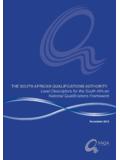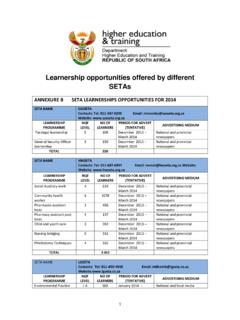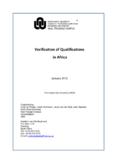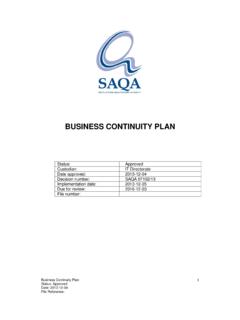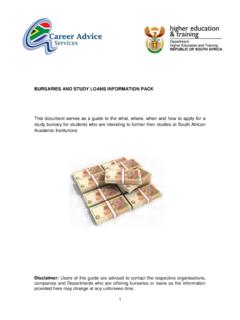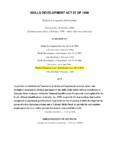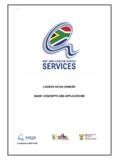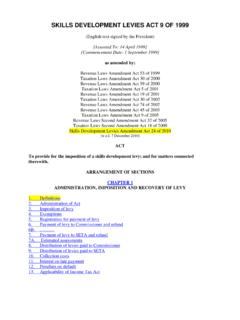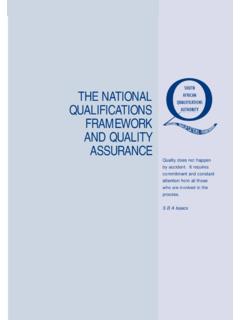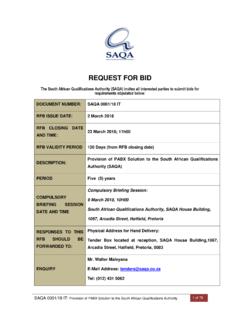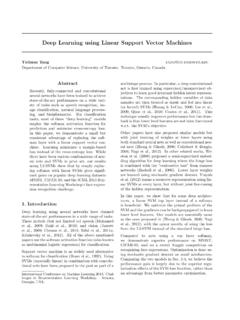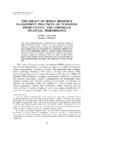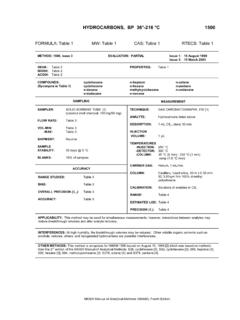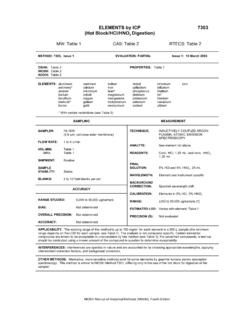Transcription of THE SOUTH AFRICAN QUALIFICATIONS AUTHORITY
1 THE SOUTH AFRICAN QUALIFICATIONS AUTHORITYN ational Policy and Criteria for Designing and Implementing Assessment for NQF QUALIFICATIONS and Part- QUALIFICATIONS and Professional Designations in SOUTH Africa1 ContentsForeword ..2 Glossary of Terms ..4 National Policy and Criteria for Designing and Implementing Assessment for NQF QUALIFICATIONS and Part- QUALIFICATIONS and Professional Designations in SOUTH Africa ..10 Context ..10 Purpose and Objectives ..11 Scope and Application ..12 Core Assumptions and Principles of Assessment ..12 Content of Assessment ..13 Criteria and Guidelines for Implementation ..14 Assessment Requirements and Responsibilities ..18 Effective Implementation Date ..20 List of Acronyms ..25 Members of SAQA s Assessment Reference Group.
2 252 The National QUALIFICATIONS Framework (NQF) Act (Act 67 of 2008) mandates the SOUTH AFRICAN QUALIFICATIONS AUTHORITY (SAQA) to develop policy and criteria, after consultation with the Quality Councils (QCs), for assessment. The attached Policy and Criteria have been developed by SAQA after consultation with all the QCs and in collaboration with an Assessment Reference Group (please see a list of Reference Group members at the end of the document), and it took into account comments made by a wide range of stakeholders obtained in the extended period during which the document was available in gazette form for public are a number of national assessment policies in existence1. The present Policy and Criteria speak to all existing national assessment policies, and all future assessment policies relating to NQF QUALIFICATIONS and part- QUALIFICATIONS , and professional designations in SOUTH Africa.
3 The purpose of the National Policy and Criteria for Designing and Implementing Assessment for NQF QUALIFICATIONS and Part- QUALIFICATIONS and Professional Designations in SOUTH Africa (hereafter referred to as the National Policy for Designing and Implementing Assessment or the Policy) is to set minimum criteria and provide guidance for effective, valid, reliable and consistent, fair and transparent, and appropriate assessment in the context of the NQF. The specific context of each QC and its Sub-Framework must be considered in the interpretation of this initially developed policy, criteria and guidelines for assessment in 2001 and 2005. These documents have been used widely but a need arose for them to be updated for alignment with the NQF Act 67 of 2008 that replaced the SAQA Act 58 of 1995.
4 The Policy achieves the revision needed and takes into account the roles of the Department of Higher Education and Training, the Department of Basic Education, SAQA, the QCs, recognised professional bodies, providers at all levels in the system, and is the intention of this Policy to contribute to the quality of learning and assessment for all learners and educators. The Policy has been developed in line with the principles of lifelong learning which involve development of the whole learner, and an approach in which assessment is seen as a dynamic part 1 National assessment policies include all assessment-related policies and re-lated documents issued by the Department of Higher Education and Training (DHET), the Department of Basic Education (DBE), the Council on Higher Edu-cation (CHE), the Quality Council for Trades and Occupations (QCTO), Umalusi, and others.
5 Foreword3 of learning. Assessment is sought which enables learning and which can measure changes in learning. We trust that through this Policy it will be possible for the key NQF organisations and stakeholders in the system to work collectively and demonstrably better the lives of learners of all ages and in all fields of looks forward to working with the QCs and a broad range of stakeholders to implement this National Policy and Criteria for Designing and Implementing Assessment for NQF QUALIFICATIONS and Part- QUALIFICATIONS and Professional Designations in SOUTH Africa comes into effect on the date of its publication in the Government Samuels,Chief Executive Officer4 The following list of terms is elaborated in an attempt to clarify concepts used in this document, towards wide implementation of the Policy.
6 Accountability means that all relevant role-players must be able to provide evidence of the develop-ment and moderation of assessment tasks and processes, and that these tasks and processes are aligned with National Policy for Designing and Implementing Assessment as well as sectoral policies derived from the National Policy. Assessment body means a department of education or an entity accredited/ delegated by a Quality Council to conduct external summative assessment and moderate site-based assessment for specified QUALIFICATIONS , part- QUALIFICATIONS , professional designations, or prior learning. Assessment criteria means the standards used to guide learning and assess learner achievement and/ or evaluate and certify competence.
7 Assessment means the process used to identify, gather and interpret information and evidence against the required competencies in a qualification , part- qualification , or professional designation in order to make a judgement about a learner s achievement. Assessment can be formal, non-formal or informal; assessment can be of learning already done, or towards learning to inform and shape teach-ing and learning still to be done. Assessor means a person able to conduct high-quality internal and external assessment for specific QUALIFICATIONS , part- QUALIFICATIONS , or professional designations. Appropriately qualified lecturers, teach-ers, educators, trainers, examiners, moderators, chief markers, markers, Recognition of Prior Learning (RPL) specialists, and Credit Accumulation and Transfer (CAT) officials are all examples of assessors.
8 Bias means assessment practices that hinder or advantage particular learners or groups of learners. An absence of bias is sought, where all learners and educators are treated with equal respect and consideration regardless of social, economic, cultural, faith-based, ethnic, gender or other differences, and where disabled learners and educators are given appropriate support. Blended learning means learning and assessment based on a variety of modes, types, sites, outputs, contexts, platforms and other aspects including contact and technology-mediated learning. Credibility means a respected process or product which results from a fair, valid, and reliable val-idation process designed to enhance the quality of a qualification , part- qualification , or professional designation.
9 Credit accumulation and transfer (CAT) system means an arrangement whereby the diverse features of both credit accumulation and credit transfer are combined to facilitate lifelong learning and access to the workplace. Credit accumulation means the totalling of credits required to complete a qualification or part-qualifi-cation. Credit transfer means the vertical, horizontal or diagonal relocation of credits towards a qualification or part- qualification on the same or different level, usually between different programmes, departments or institutions. Glossary of Terms5 Credits means the amount of learning contained in a qualification or part- qualification whereby one credit is equal to ten (10) notional learning hours. Curriculum for the purposes of this Policy means requirements for learner achievement of a qualifica-tion or part- qualification in terms of knowledge, skills, and where relevant, work experience.
10 Diagnostic assessment means assessment conducted before teaching or training starts, for the pur-poses of identifying learners strengths and weaknesses, in order to use the associated information for the purposes of creating suitable learning environments. Dynamic assessment means assessment practices in which mediation, learning, testing, frequent feedback to learners and systematic monitoring of changes in learning are explicit parts of the learning context. The goal of dynamic assessment is to see whether, by how much and in what ways those be-ing assessed change as a result of being presented with opportunities to learn. Educator is an inclusive term referring to teachers, lecturers, facilitators, assessors, moderators, and others teaching, educating, training, facilitating, assessing, or enabling learning in learning contexts across the board.
